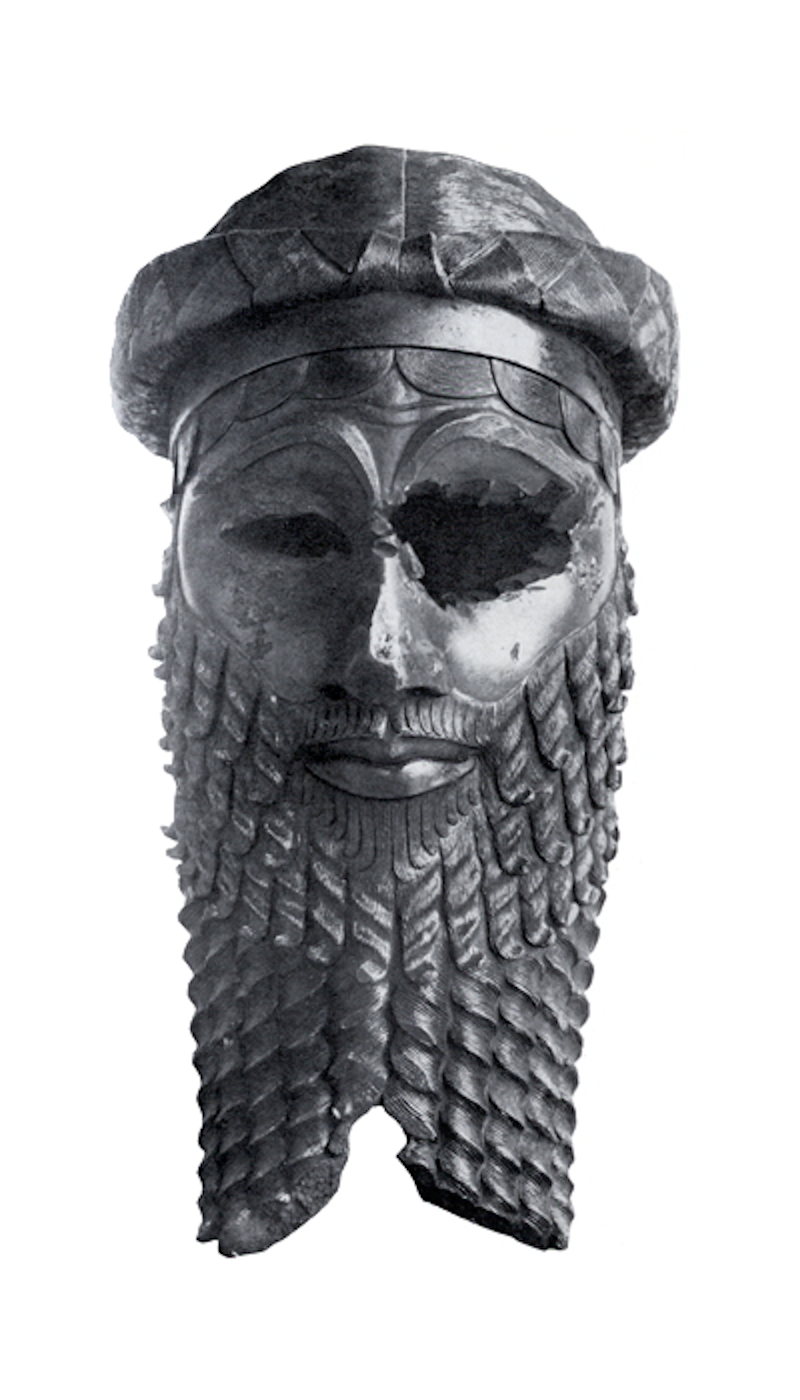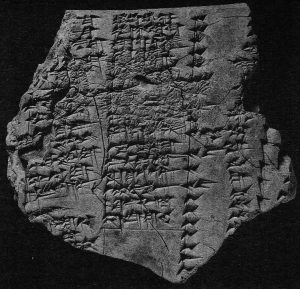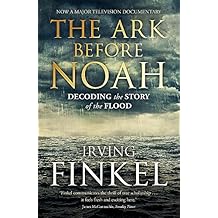“Reckless and incompetent expounders of holy Scripture bring untold trouble and sorrow on their wiser brethren” Saint Augustine of Hippo, Commentary on Genesis, ca. 400 AD
How do you discuss evolution and Earth science with biblical creationists, in such a way as to lead them to question their beliefs, rather than digging in deeper? This is the central problem for the book that I am now at last writing, and I would greatly value comments.
If we want to engage biblical literalists in meaningful discussion, we need to use arguments that make sense from the literalists’ point of view. As Lakatos pointed out, scientists will not abandon a position, despite anomalies, until a more satisfactory one is offered. Why should the creationist be any different? It is not enough to point to the scientific evidence. It is not even enough to point out that Noah’s Flood, using biblical chronology, would have come just in time to drown the pyramid-builders. We need to do more than simply raise objections. We must offer a better alternative, better, that is, on the creationist’s terms, emotionally and spiritually. Such an alternative, I argue, is what emerges from textual and historical analysis.
It helps, I think, to dispel the myth that religious belief requires belief in a young Earth, and the rejection of evolution, and one way of doing this is to point out that most religious believers, in the West at least, do accept, and have contributed to, the science. Since the early 19th Century, biblical believers have been among prominent proponents of scientific geology and, later, of evolution. Most Christians belong to denominations that accept the fact of evolution, and there is an organisation, the Clergy Letter Project, dedicated to the celebration of evolution as part of God’s handiwork, a position sometimes referred to as theistic evolution. There are organisations, such as the American Scientific Association, devoted to accommodating religious beliefs to the science, and a large literature on the subject. Creationists, however, are either unaware of this activity, or reject it as incompatible with their more fundamental beliefs.
The creationist argument is simple: the Bible (including in particular Genesis) is the word of God, God tells the truth, therefore the Bible is true. What could be wrong with that, from the point of view of the believer?
Plenty.
 However inspired the writers of Genesis may have been, they were of necessity people of their own times, expressing themselves within their own cultural context. This is hardly a novel observation. It goes back at least to Maimonides, 12th Century biblical commentator and philosopher.
However inspired the writers of Genesis may have been, they were of necessity people of their own times, expressing themselves within their own cultural context. This is hardly a novel observation. It goes back at least to Maimonides, 12th Century biblical commentator and philosopher.
And what a context! The Old Testament text itself refers to many books that are now lost to us. The biblical Flood narrative itself shows signs of being formed from the welding together of two separate accounts written from different viewpoints, while its literary antecedents, and the antecedents of numerous other biblical passages, go back long before the date ascribed to Moses.

Bronze head of Sargon(?), unearthed at Nineveh. Public domain via Wikipedia
You are probably familiar with the story of Moses in the bulrushes, and may have wondered where on earth it came from. Here’s your answer. It is a direct echo of the story of Sargon of Akkad (2270 – 2215 BCE). Sargon’s mother, he tells us, was a priestess, and therefore had no business having children. So she made him a reed basket sealed with bitumen, and placed him in the river, from which he was rescued by a farmer drawing water.
Consider also the Code of Hammurabi, around 1754 BC. This code, and many subsequent cuneiform tablets, resemble in their “If a man…” format the codes of Exodus and Deuteronomy, including the notorious “an eye for an eye”, which the Jews by rabbinical times had reinterpreted as a right to financial compensation for injury. And the part-mythical, part-historical Sumerian Kings List (ca. 2000 BCE) assigns enormously long lives of the pre-Flood rulers, as Genesis does to its pre-Flood patriarchs.

Hammurabi receiving insignia from a seated god (Shamash, the Sun God, or Marduk); from Louvre stele of the Code, ca. 1750 – 1790 BCE. Image Mbtz own work via Wikipedia
The Flood story itself exists in numerous versions, the oldest ones known to us being the Sumerian Flood of Ziusudra and the Old Babylonian (Akkadian) of Atrahasis, from around 1600 BCE, although the story may by then already have been ancient. We should also remember that our cuneiform libraries are sadly incomplete, and in several key texts the ending is missing. Even so, the resemblance is clear, and sometimes extends to specific details. On one Old Babylonian tablet, the god who warns Atrahasis says that he will send him the animals to wait at his door to be rescued. Compare Genesis 6:20, where two of every sort will come of their own accord to Noah, thus answering the question of how he would have been able to round them all up. The same tablet even uses the expression “two by two”, as in Genesis 7:9, as does another recently translated tablet, the “Ark tablet” from around 1750 BCE, that shows the Ark as an enormous coracle.

Coracle on the Tigris in Baghdad, 1914. Freddy Khalastchy via Wikipedia
Closest to the biblical account among the surviving materials is the story of Utnapishtim, embedded in the Assyrian Epic of Gilgamesh, which I finally got around to reading this year. part of the great library of Ashur-bani-pal that was buried in the wreckage of Nineveh when that city was sacked by the Babylonians and their allies in 612 BCE. Gilgamesh is a surprisingly modern hero. As King, he accomplishes mighty deeds, including gaining access to the timber required for his building plans by overcoming the guardian of the forest. But this victory comes at a cost; his beloved friend Enkidu opens by hand the gate to the forest when he should have smashed his way in with his axe. This seemingly minor lapse, like Moses’ minor lapse in striking the rock when he should have spoken to it, proves fatal.
 On his journey, Gilgamesh meets the one man who has achieved immortality, Utnapishtim, survivor of a flood remarkably similar, even in its details, to the Flood in the Bible. This includes the central figure acting on orders from a god, taking samples of all living things into the Ark, sealing it watertight with pitch (which is abundant in Mesopotamia), sending birds out of the Ark to test for dry land when, after the flood, it runs aground, and offering up sacrifice on emergence. In Genesis, famously, we have God pointing to the rainbow as a sign that He will never again bring on a universal flood. In the parallel passage in Gilgamesh, the goddess Ishtar displays her bejewelled necklace and says that she will never forget this time. There is a final element in Gilgamesh that is completely absent in Genesis. Enlil, who was primarily responsible for the Flood, is persuaded by the other gods that he has rather overdone it, goes down into the Ark, takes Utnapishtim and his wife by the hand, and grants them eternal life. (In Genesis, you may recall, Noah goes and gets drunk.)
On his journey, Gilgamesh meets the one man who has achieved immortality, Utnapishtim, survivor of a flood remarkably similar, even in its details, to the Flood in the Bible. This includes the central figure acting on orders from a god, taking samples of all living things into the Ark, sealing it watertight with pitch (which is abundant in Mesopotamia), sending birds out of the Ark to test for dry land when, after the flood, it runs aground, and offering up sacrifice on emergence. In Genesis, famously, we have God pointing to the rainbow as a sign that He will never again bring on a universal flood. In the parallel passage in Gilgamesh, the goddess Ishtar displays her bejewelled necklace and says that she will never forget this time. There is a final element in Gilgamesh that is completely absent in Genesis. Enlil, who was primarily responsible for the Flood, is persuaded by the other gods that he has rather overdone it, goes down into the Ark, takes Utnapishtim and his wife by the hand, and grants them eternal life. (In Genesis, you may recall, Noah goes and gets drunk.)
 Sources: This piece was triggered by reading Sanders’ 1960 translation of The Epic of Gilgamesh. Reading this sent me back to Genesis, and hence to two other books,
Sources: This piece was triggered by reading Sanders’ 1960 translation of The Epic of Gilgamesh. Reading this sent me back to Genesis, and hence to two other books,
Reblogged this on Peddling and Scaling God and Darwin and commented:
A good account bringing in Gilgamesh
My worry is that Creationists would ignore that . They need to see that Genesis was written in c1000BC in terms that were understoood THEN and is thus not science of today.
LikeLike
Paul, you document well many other stories that may relate to the Biblical stories. I’m less convinced when you argue that the Bible stories must have been influenced by the other stories and that these other stories were even incorporated into the Biblical stories. First, you say, “Thus, placed in context, the Flood story fits into a picture of intellectual and spiritual ferment as people, and peoples, develop their descriptions of the Deity.” Isn’t the Bible pretty clear on the one single deity right from Genesis 1? Second, the recent discovery of Sodom in Jordan (see book by this name) supports the Biblical account in many aspects. And Sodom was destroyed about 1700 BC. Isn’t this an example of the truth being carried forward by 700 years until the time of Moses (1,000 BC) without being distorted by all the existing Sumerian stories and without being distorted by time?
LikeLike
One could write volumes about the timing of the writing of Genesis, and whether it builds on earlier religions, but that’s not what this piece is about. My aims are more modest. I spell out the changing nature of Marduk-worship in Babylon at the time of maximum contact between Jews (as we can call them from Exile times onwards) and the other peoples of Mesopotamia, and present clear evidence of interaction between the account(s) of the flood in Genesis and the succession of flood stories in Sumeria, Assyria, and Babylonia. So I think my comments stand.
I list detailed resemblances between the Gilgamesh and the Genesis accounts, and infer some kind of mutual influence, or influence from a shared source. Do you agree?
Please give a fuller citation to the book you refer to. “Sodom in Jordan” got no hits on Amazon. I remember seeing controversy over the claim you refer to, and would welcome more specificity.
For over-riding reasons to reject Mosaic authorship of Genesis, ad even to call into serious question the historicity of Moses and the earlier biblical patriarchs, see The Bible Unearthed, by Finkelstein and Silberman, directors of archaeological institutes at Tel Aviv University and at Belgium’s Ename Centre. In brief, the descriptions, place names, and titles in Exodus match those of around 700 BCE, not 1400 BCE,and there is no evidence outside Exodus and sources quoting Exodus either of the Plagues of Egypt or of the long migration of large numbers of people through Sinai. And, as I remarked, the Genesis Flood tok place at the height of the prosperity of the Egypt’s Old Kingdom, which doesn’t seem to have noticed it.
I would greatly value your comments.
LikeLike
What single deity? If one reads it, there are many deity scattered all over the area – essentially one per tribe.
LikeLike
Good to hear about the book. Great, actually.
As to approach, I’d be completely honest. Right off the bat, say there is nothing to support the biblical account, which will be explained in coming chapaters, and then cite Israeli rabbis confirming exactly that. I’ve interviewed many, and they are quite forthcoming. You can then perhaps piggyback a ride on Rabbi Wolpe who maintains his faith in the biblical god while easily dismissing the narrative. That then is the alternative; the door. They can still believe, but they have to adjust their belief, just as Wolpe has.
LikeLike
Thanks. I’d welcome links to Wolpe and similar thinkers within Judaism. My personal involvement iwth Judaism petered out around 1960, but I have heard that over the past few decades even Orthodox rabbis (I mean real Orthodox, not the crazed Haredi radicals) have come to follow much the same line as you describe.
LikeLike
Rabbi David Wolpe’s email is (at least was the last time I spoke with him) is
***
You might want to also reach out to Rabbi Adam Chalom, head of the Kol Hadash Humananist Congregation (Atheist Jews). He’s the successor to Rabbi Sherwin T. Wine, and astonishing man. ***
Dr Erez Ben-Yosef (Tel Aviv Uni) is really a very approachable Israeli archaeologist. If you need anything regarding archaeology (in Israeli) then he’s a go-to person.***
And yes, in early 2012 Orthodox Rabbi Norman Solomon published his book, Torah from Heaven: The Reconstruction of Faith, in which he presented the case that the concept of Torah Mi Sinai (the claim that the Five Books of Moses were dictated by the god Yahweh to Moses on Sinai) was not rooted in reality but was rather a “foundation myth;” an origin dream, not a descriptive historical fact. The admission sent shockwaves through the Orthodox world not felt since the one-time candidate for Chief Rabbi of Britain, Rabi Louis Jacobs, contested the validity of Torah Mi Sinai by delicately suggesting that it was a “complex idea with textual, historical, and philosophical problems that needed to be addressed;” a seemingly benign statement, but one which ultimately cost him the position and standing in the Orthodox community. Fifty years later Solomon’s conclusions have drawn analogous and strikingly harsh criticism from influential Orthodox groups including the Vaad Harabonim, a cluster of Canada’s most prominent Orthodox rabbis, who publically denounced the British rabbi and accused him of ‘kefiroh baTorah’ [heresy].
In all, if the “owners” of the tale can be honest then that seems to be a way to sooth Creationists, to let them feel comfortable moving into territory that terrifies them.
LikeLiked by 1 person
Thanks. I remember (yes I *am* that old) the Jacobs case. My stepfather was dead against Jacobs. Did he (my stepfather) really believe that Moses had written the Pentateuch? No; but a Chief Rabbi should be held to a higher standard
LikeLiked by 1 person
Oh, Paul, could you edit out the email addresses included. I should have sent you an email with them. They really shouldn’t be public.
Thanks.
LikeLike
Done
LikeLiked by 1 person
On a related matter, I’ve just made this comment under today’s ‘Answers News’ on YouTube:
Ken Ham and co lying again about scientists believing there was a past ‘global flood’ on Mars. No. It was an ocean (probably over a large proportion of the planet) not a global flood (there for many millennia not 12 months). Lies again that if the Bible spoke of a past ‘global flood’ on Mars scientists would deny it. Pretends that there’s no difference between Earth and its history and Mars and its history – and therefore if scientists think there was a ‘global flood’ on Mars they ought to think there was on Earth (and recently too). But they refuse because they want to deny the Bible. However, Mars lost an atmosphere whereas Earth didn’t.
LikeLike
Sargon? Gilgamesh? That would mean they had to chuck the baby out with the Floodwater. Accepting antecedents to their myths would cause their literalist brains to fuse.
LikeLiked by 1 person
If the individuals are “products of their time” in regards to slavery and their treatment of women, children, and the other, then why aren’t they products of their time in regards to what we would call science?
LikeLike
I don’t think this argument will convince them because the various flood stories could have developed independently out of the same story instead of developing linearly from one to the next, even if that is unlikely. That leaves room for the Genesis story to be more faithful to the original (again, even if that is extremely unlikely).
To me, the most convincing argument that a global flood didn’t hsppen is that it would require all the marsupials to migrate to Australia and South America and not stay anywhere else, while common animals in the rest of the world stay out of Australia. If all the animals on earth are descended from the ones on the ark, how did they end up distributed that way? And why?
LikeLike
To say nothing of the penguins
LikeLike
Penquins? What’s the problem? They’re just rather well adaptd members of the fish Kind.
LikeLike
During one of my Evolution Weekend sermons, I had a bright, talkative self-described Fundamentalist in the congregation. We talked for hours afterward. He tried, but could not fault my sermon. A quote from that sermon: “Today we read the second creation story of Genesis. Verses ten to fourteen tell of the great river that flows from Eden and divides into four rivers. Only two of the river names are known today. The Tigris and Euphrates originate in the mountains of Armenia, which would put Eden in the north, rather than in the east. Perhaps the original version called for the rivers to flow into instead of out of Eden. Depends which way rivers really can flow. Or Eden may have been near the Persian Gulf. And that reference to the land of Cush cannot refer to Ethiopia, what was called the land of Cush, thousands of years ago. No matter the specifics, the geography is mistaken. That need not disturb us. The Bible is a source of theology, understanding about God, not geography.”
If we want to argue with Fundamentalists, we need to come from scripture, respect scripture, and argue from scripture. In a general writing or sermon, I would not go at a favorite story directly. Respecting scripture includes understanding why stories were told and adapted as they were. For example: when our children were surrounded by people who believed in many gods, we retold those great stories so our children would understand there is only one God. That is why Genesis 1:16 refers to greater light and lesser light, because back then, the names for the sun and moon were names of gods, and we couldn’t say those!
Respecting scripture also includes celebrating what it is and what it gives. The Bible preserves thousands of years of love stories between a forgiving God and God’s contrary people. If we want to know how the earth turns around the sun, we look in a science book. If we want to know which rivers flow in Palestine, we check a geography book. If we want to know who created such a marvelous universe, look to the God who dearly loves us. I believe it always helps that I love people and take care not to make them feel attacked or stupid. So, reduce or explain the big words. If speaking person-to-person, it is a win if the person is left pondering. Do not expect anyone to declare you correct. Fundamentalists can be rocky soil, not open for planting. They believe their eternal lives dangle from their beliefs. As a pastor, it was much more important to speak to the great middle ground. I wanted congregants to tell science teachers, “Teach science. We’ve got your back.”
It appears recordings of a few of my sermons are still on the clergyletterproject.org sermon page.
LikeLiked by 1 person
Thanks. This accommodation is the approach is precisely what I am advocating. Indeed, I make the point that embedding the text in its historical and cultural context actually enriches it.
What happened to the fundamentalist eventually, and can you remember what arguments he used, other than “But the Bible says…”?
What denomination are you, in what kind of area, and what do your congregants think of all this?
LikeLike
The Fundamentalist gave me respect when he was in my church, even following my rules in Bible studies. After that sermon, I believe he said things like, “Now, if you had said that creation did not take 6 days . . .” on several different points. But I had not attacked their favorite stories. There is a lot subtle in my sermons, such as referring to the second creation story in Genesis. Again, my aim is the general public, not creationists. My aim is to take down barriers between people and God, not make anyone feel stomped on.
I am UCC, still ordained, but now working as a special education teacher. I spent 3 months teaching in Jamaica this spring/summer.
LikeLike
I am no expert on US christian denominations, but from what I read, the UCC statement of faith is fully compatible with the scientific account. I like your reference to “the second creation story”. This does not state, but invites the hearer to discover, the idea that the only part of Genesis contains two separate intertwined, and if taken literally mutually exclusive, accounts. I assume that is your intent, and will steal this expression should occasion arise.
LikeLike
This is what I say to creationists … not that I think it’s ever convinced anyone:
According to Psalm 19, “the heavens proclaim the glory of God”. And indeed they do. The heavens proclaim a magnificent universe, 13.798 +/- 0.037 billion years old, full of microwave radiation, galaxies, clusters, stars, nebulae, and planets (1078 known to date); various and arresting and beautiful. At least one planet has life: 1.2 million cataloged species – far too many to have been discovered and named by one individual – varying from zebras to Sequoia to whales to gnats to Hallucigenia to Bdellovibrio to Sulfolobus. But even without life our planet is various and arresting and beautiful: crystals, lodestones, fluid turbulence, waterfalls, geysers, rainbows, clouds; 79 million cataloged chemical compounds, combinations of 92 naturally occurring elements, all made up of electrons, protons, and neutrons. Every day new scientific discoveries show that the glory we know at present is but a fraction of the full glory of God.
Most of this glory is undescribed in the Bible, for the excellent reason that the several authors of the Bible didn’t know it. Realizing the limits of their understanding, these authors never claimed that “the Bible proclaims the glory of God” just as today we don’t claim that “Chemical Abstracts proclaims the glory of God”. If we limit our understanding of God to the understanding presented in the Bible, we shortchange ourselves, we shortchange the Bible, and we shortchange God.
LikeLike
Paul,
I have spent many years talking with creationists. What they want to hear is that their faith is intact, regardless of how old the Earth is, or the mechanism that God used to create life. A good starting point would be to show how one could accept the Apostles’ Creed, and still embrace science.
LikeLike
Have you worked with a self-defined Fundamentalist who adheres to the Apostles’ Creed?
LikeLike
Yes–most fundamentalists accept the basic tenets of the creed, but without accepting it as a governing document.
LikeLike
Pingback: The Curse of Ham/Canaan: A Mythological Mystery | Primate's Progress
Pingback: What does Mt St Helens teach us about Noah’s flood? Almost nothing. | Primate's Progress